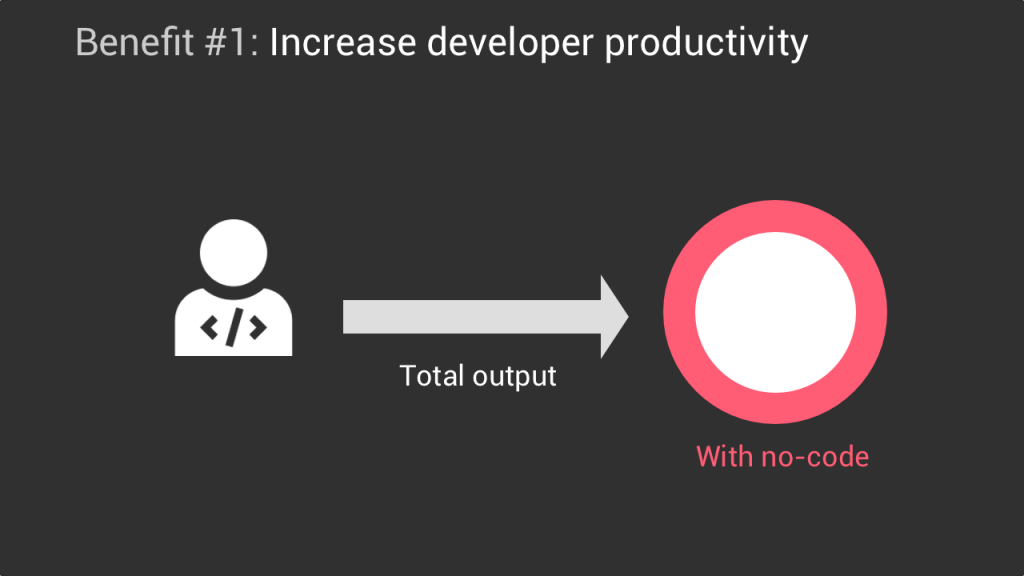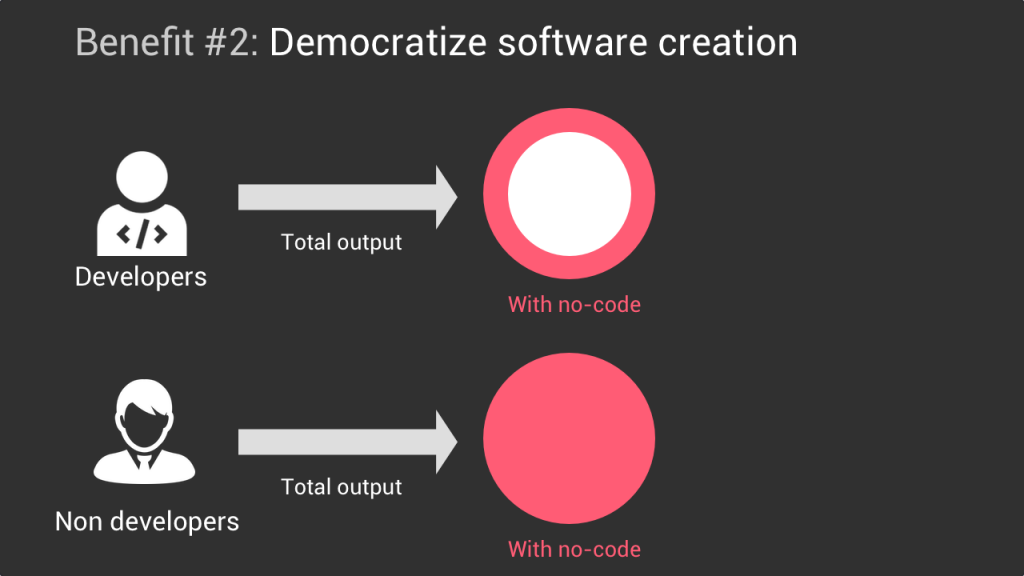When I first got introduced to the concept of no-code, I initially didn’t really know if it was hype only or if it would be a product trend that would have a big impact on the B2B software industry. Especially that this term is often overused. For instance, I don’t think that Notion is a no-code tool. It’s a next generation Google Doc, yes, but editing text documents is definitely not a task that required programming skills prior to Notion. In my opinion Airtable is a better example of what a no-code tool is, since it’s a visual interface that lets you interact with a database. Which you would normally do with database queries.
Anyway, around 6 months ago I decided to seriously dig into this topic by doing my own research as well as trying several real no-code products. And the result is that I’m now convinced that it is a very important trend for the industry and not just a short lived hype.
While doing my research, the metric that struck me the most is the number of software developers worldwide. To my surprise, there are only 25 million of them worldwide. I know it’s hard to compare apples and pears, but just to give you some perspective, more than 100 million people are estimated to work in marketing and sales, at large.
And this number is not going to grow fast in the next couple of years because “producing” developers is hard and involves complexe problems that run deep into our education systems. So on one hand we live in a world that increasingly relies on software and on the other we don’t have enough people to build it. This is why I think that the no-code trend will have a huge impact in the years to come.
First, most no-code products are actually made for developers. Their aim is not to replace developers but to make them more productive. So the first benefit of these tools will be to increase the productivity of developers. With the same number of developers we will be able to create more software.

Second, many no-code tools democratize software creation. It enables people with no prior coding experience to create the software and tools they need. Suddenly, if we take back the example of people working in marketing and sales, it’s now more than a hundred million people who are able to create software.

Obviously there are levels to this game, and a social media manager will probably not work on the code of Tesla self driving software, but not every developer is an AI specialist either. The bottomline is that more and more people will be able to create software even if these are simple tools.
This is why by looking at this macro picture I’m actually very bullish about the no-code trend.